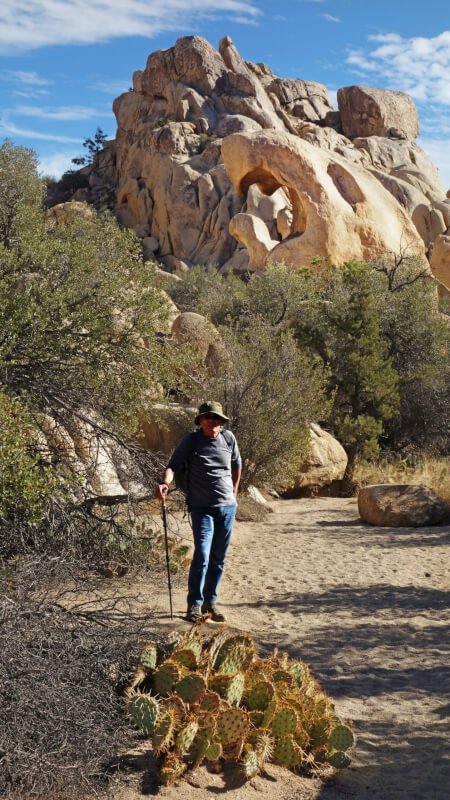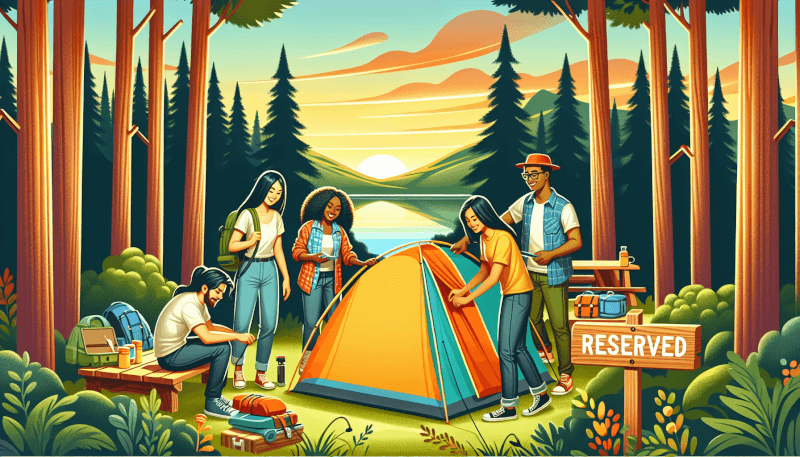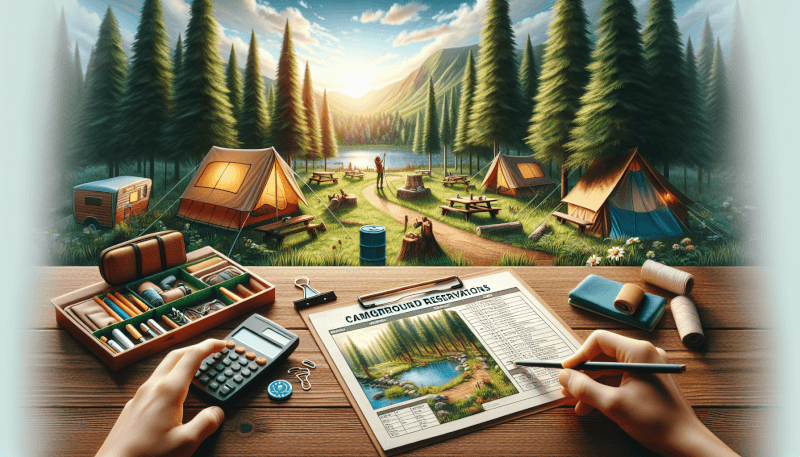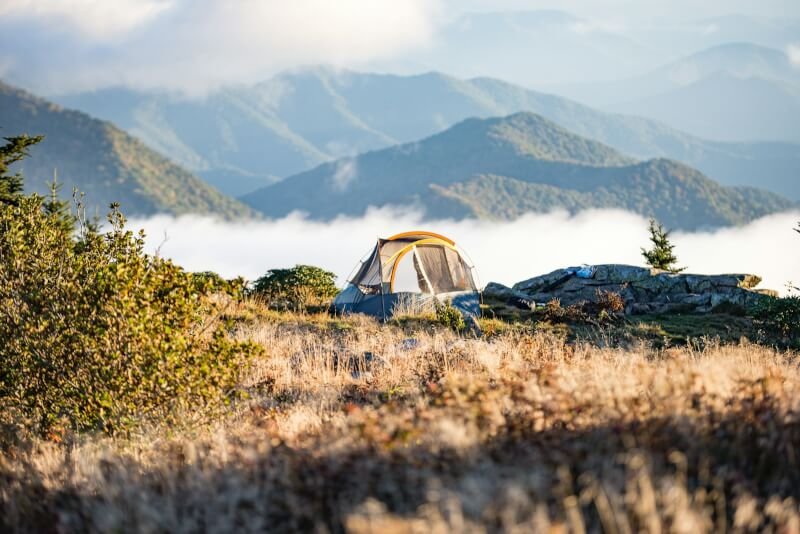Planning your first camping trip can be exciting, but it’s important to understand the ins and outs of campground reservations. In this article, we will provide beginner campers with essential information about making campground reservations. From booking in advance to understanding cancellation policies, we’ve got you covered. So, grab your backpack, gather your camping gear, and let’s dive into the world of campground reservations!
Understanding Campground Reservations
Availability of Campground Reservations
When it comes to campground reservations, it’s crucial to understand the availability of campsites. Campgrounds often have limited spaces, especially during peak seasons, so it’s important to plan and book in advance. Popular campgrounds can fill up quickly, so being aware of the availability of reservations will help you secure your desired campsite.
Types of Campground Reservations
Campground reservations can vary depending on the location and the management system in place. Some campgrounds offer different types of reservations, such as first-come, first-served sites or specific site reservations. First-come, first-served sites are great for those who enjoy spontaneity and don’t mind the uncertainty of availability, while specific site reservations allow you to book a particular campsite ahead of time.
Booking Window for Campground Reservations
Knowing the booking window for campground reservations is essential to secure your preferred dates. Some campgrounds allow reservations up to a year in advance, while others may have shorter booking windows, like six months or even a few weeks. It’s important to check the specific campground’s reservation policy to ensure you can book when the window opens.
Minimum and Maximum Stay Restrictions
Different campgrounds may have minimum and maximum stay restrictions in place. For example, some campsites may require a minimum of two or three nights, especially during peak seasons, while others may have no specific requirement. Additionally, some campgrounds may also limit the maximum number of nights you can stay consecutively. Be sure to check the campground’s regulations regarding stay restrictions before making your reservation.
Cancellation Policies
Cancellation policies for campground reservations can vary widely. Some campgrounds offer full refunds for cancellations made within a certain timeframe, while others may have non-refundable deposits or fees. It’s essential to read and understand the campground’s cancellation policy before making a reservation. This will help you plan accordingly and avoid any unexpected fees or charges.
Choosing the Right Campground
Researching Campground Options
Before making a reservation, it’s important to research different campground options. Consider factors such as location, amenities, and proximity to attractions or outdoor activities you’re interested in. Take your time to browse through various campgrounds and read reviews to get a sense of the experiences other campers have had at each location.
Considering Amenities
Amenities can greatly enhance your camping experience, depending on your preferences and needs. Some campgrounds offer amenities such as electric hookups, water connections, restrooms, showers, picnic tables, and fire pits. Consider what amenities are essential to you and prioritize them when choosing a campground.
Evaluating Campground Location
Campground location is another crucial factor to consider. Think about the activities and attractions you plan to explore during your camping trip. If you’re interested in hiking or fishing, choosing a campground near a national park or a lake would be ideal. Evaluate the proximity of the campground to your desired destinations to make the most of your camping experience.
Reading Campground Reviews
Reading campground reviews can provide valuable insights into the experiences of other campers. Look for reviews that mention aspects important to you, such as cleanliness, staff friendliness, and noise levels. Keep in mind that everyone’s preferences may vary, so it’s important to read multiple reviews to get a well-rounded understanding of the campground you’re considering.

Making Campground Reservations
Online Reservations
Making campground reservations online is a convenient and efficient way to secure your spot. Many campgrounds offer online reservation systems where you can browse available campsites, select your desired dates, and complete the booking process. It’s important to have all necessary information ready, such as the number of guests, the type of equipment you’ll be using, and any special requirements.
Phone Reservations
If you prefer a more personal touch or have specific questions about the campground, making reservations over the phone is still a viable option. Call the campground’s reservation line and provide the necessary information to the staff. They can assist you in finding the right campsite and answer any questions you may have about the reservation process.
Walk-In Reservations
For those who enjoy a more spontaneous camping experience or prefer to book upon arrival, many campgrounds offer walk-in reservations. This means you can physically go to the campground and inquire about available campsites on the day of your arrival. However, it’s important to note that walk-in reservations are subject to availability and may not guarantee you a spot during peak seasons or at popular campgrounds.
Reservation Fees
Campgrounds may charge reservation fees to cover administrative costs and ensure the smooth operation of the reservation system. These fees can vary, so it’s important to check the campground’s website or contact them directly to inquire about any applicable reservation fees. Budgeting for these fees will help you accurately plan and prepare for your camping trip.
Preparing for Campground Reservations
Determining Campsite Requirements
Before making campground reservations, it’s essential to determine your campsite requirements. Consider factors such as the size of your camping equipment, the number of people in your group, and any specific needs you may have, such as accessibility requirements or the need for a pet-friendly campsite. Knowing your requirements will help you choose a suitable campsite during the reservation process.
Checking Campground Regulations
Each campground has its own set of regulations that campers must abide by. These regulations may include rules regarding pets, quiet hours, campfire guidelines, and trash and recycling procedures. Familiarize yourself with the campground’s regulations before making a reservation to ensure they align with your preferences and camping style.
Gathering Necessary Information
Gathering all the necessary information before making a campground reservation will streamline the process. Ensure you have essential details such as your preferred dates of stay, the number of guests, the type and size of your camping equipment, and any special requests or requirements. Having this information ready will make the reservation process quick and efficient.
Creating a Backup Plan
Sometimes, despite careful planning and preparation, campground reservations may not work out as expected. It’s always a good idea to have a backup plan in case your desired campground is fully booked or unavailable. Research nearby campgrounds as alternatives, and have flexibility in your camping dates to increase the chances of securing a suitable campsite. Having a backup plan will help ensure a stress-free and enjoyable camping experience.

Tips for Successful Campground Reservations
Plan Ahead
One of the most important tips for successful campground reservations is to plan ahead. Research, choose, and book your campground well in advance, especially if you’re planning to visit during peak seasons. By doing so, you’ll have more options available and a higher chance of securing your ideal campsite.
Be Flexible with Dates
Being flexible with your camping dates can significantly increase your chances of getting a reservation. If your desired campground is fully booked, consider adjusting your stay dates slightly to find an available campsite. Being open to different dates can open up new possibilities and allow you to experience different aspects of your chosen destination.
Check for Last-Minute Cancellations
Keep an eye out for last-minute cancellations. Popular campgrounds are often fully booked months in advance, but cancellations do happen. By regularly checking the campground’s reservation system or contacting the management, you might snag a canceled reservation and secure a spot that would have otherwise been unavailable.
Consider Shoulder Seasons
Shoulder seasons, the periods just before or after peak seasons, can be a great time to book campground reservations. These seasons often offer more availability, lower rates, and more peaceful camping experiences. Consider planning your camping trip during off-peak times to take advantage of these benefits.
Handling Reservation Challenges
Deal with Limited Availability
Limited availability can be a challenge, especially when trying to book a campsite at a popular campground. If you encounter limited availability, consider alternative campsites nearby that may have openings. Additionally, adjusting your camping dates or considering weekdays instead of weekends can increase your chances of finding an available campsite.
Overcome High Demand Periods
High demand periods, such as holidays or long weekends, can make it challenging to secure campground reservations. To overcome this challenge, it’s essential to plan well in advance and be flexible with your dates. Booking early and considering camping destinations that are less popular during these periods can help you find available campsites.
Resolve Booking Errors
Sometimes, booking errors can occur due to technical glitches or mistakes made during the reservation process. If you encounter any booking errors, contact the campground’s reservation office or customer service line immediately. They will assist you in resolving the issue and ensuring you have a confirmed reservation for your desired dates.
Manage Full Campgrounds
If you arrive at a campground and it’s fully booked, don’t panic. Look for alternative campsites nearby or ask the campground staff if they have any last-minute cancellations or overflow areas. They may be able to accommodate you or provide recommendations for nearby campgrounds with availability. Flexibility and open communication can help you manage the situation smoothly.

Understanding Campground Regulations
Pets and Wildlife Regulations
When camping, it’s essential to understand and follow the campground’s regulations regarding pets and wildlife. Some campgrounds may allow pets, while others have restrictions or specific areas designated for pets. Always keep your pets on a leash and clean up after them to ensure the safety and enjoyment of all campers. Additionally, be aware of any wildlife regulations and guidelines to preserve the natural environment.
Quiet Hours and Noise Restrictions
To respect the peace and tranquility of fellow campers, most campgrounds have designated quiet hours and noise restrictions. These hours typically occur during the evening and early morning. Adhering to these regulations ensures a pleasant camping experience for everyone. Keep noise levels to a minimum, avoid loud music or disruptive activities during quiet hours, and be considerate of your neighbors.
Campfire Guidelines
Campfires are often a highlight of the camping experience, but it’s important to follow campfire guidelines to ensure safety and environmental stewardship. Check if campfires are allowed at your chosen campground and if there are any restrictions or regulations in place. Properly extinguish campfires before leaving, never leave them unattended, and avoid collecting firewood from the surrounding natural areas to prevent damage to the ecosystem.
Trash and Recycling Guidelines
Maintaining the cleanliness of the campground is crucial to preserve the natural beauty of the surroundings. Familiarize yourself with the campground’s trash and recycling guidelines and follow them diligently. Dispose of trash in the designated receptacles and recycle whenever possible. Leave the campground in the same condition, if not better, than when you arrived to ensure a sustainable camping experience for future generations.
What to Expect at the Campground
Check-In Process
Upon arrival at the campground, you’ll need to go through the check-in process. This typically involves providing your reservation details to the campground staff, paying any outstanding fees, and receiving any necessary permits or passes. The staff will provide you with a map of the campground and may offer additional information about the facilities and amenities available.
Finding Your Campsite
Finding your assigned campsite is an exciting moment. Refer to the map provided by the campground staff and locate your site number. Campsites are usually marked with signage, making them easy to find. If you have any difficulty, don’t hesitate to ask nearby campers or the campground staff for assistance.
Setting Up Your Campsite
Once you’ve found your campsite, it’s time to set up your camping equipment. Follow campground regulations regarding equipment placement, such as tents, RVs, or cooking areas. Ensure you leave enough space between neighboring campsites to provide privacy and avoid any potential safety hazards. Take your time to set up your campsite properly, making it comfortable and functional for your stay.
Campground Etiquette
Respecting campground etiquette is essential for a smooth and enjoyable camping experience for all. Be considerate of your neighbors by keeping noise levels down, not encroaching on their personal space, and following all campground regulations. Clean up after yourself, leave common areas better than you found them, and be friendly and respectful towards fellow campers. Practicing good campground etiquette creates a friendly and welcoming atmosphere for all.

Preparing for Your Camping Trip
Packing Camping Essentials
Before embarking on your camping trip, ensure you have all the essential items packed. This includes camping equipment such as tents, sleeping bags, cooking supplies, and personal items like clothing, toiletries, and medication. Consider the weather conditions and activities you’ll be participating in to pack appropriate gear and clothing. Don’t forget to bring necessities like insect repellent, sunscreen, a first aid kit, and a camping stove or fire starter.
Meal Planning and Food Storage
Meal planning is crucial for a successful camping trip. Plan your meals in advance, considering factors such as cooking equipment available and any dietary restrictions or preferences. Opt for easy-to-prep meals and pack non-perishable food items to minimize the need for refrigeration. When storing food at the campsite, follow campground guidelines to prevent wildlife encounters. Use bear-proof containers if required and clear any food scraps or garbage promptly to avoid attracting animals.
Safety Considerations
Safety should always be a top priority when camping. Familiarize yourself with the campground’s safety procedures and emergency contact information. Be aware of any potential hazards in the area, such as wildlife, rough terrain, or severe weather conditions. Pack a basic first aid kit and know basic first aid techniques. Stay updated on weather forecasts and be prepared to adjust your plans if necessary.
Emergency Preparedness
In case of emergencies, it’s crucial to be prepared. Ensure you have a plan in place for communication, including sharing your itinerary with a trusted person who is not on the camping trip. Familiarize yourself with the location of emergency services, medical facilities, and evacuation routes if applicable. Bring essential emergency supplies such as a flashlight, extra batteries, a whistle, a map, and extra food and water. By being prepared, you can handle unexpected situations with confidence and ensure the safety of yourself and your fellow campers.
Enjoying Your Camping Experience
Exploring the Surrounding Area
While camping is an adventure in itself, don’t miss out on exploring the surrounding area. Take advantage of any nearby hiking trails, scenic viewpoints, or water activities. Research attractions and points of interest in the vicinity of the campground and plan your itinerary accordingly. Exploring the surrounding area will enhance your camping experience and offer unique opportunities for adventure and discovery.
Participating in Campground Activities
Many campgrounds offer organized activities for campers to enjoy. These activities can range from guided nature hikes and educational programs to group games and campfire storytelling. Participating in campground activities is a fantastic way to meet fellow campers, learn more about the local environment, and create memorable experiences. Check with the campground staff to see what activities are available during your stay.
Making Campfire Memories
Campfires are an integral part of camping and provide a cozy and memorable experience. Gather around the campfire with family and friends, share stories, roast marshmallows, and enjoy the beauty of the flickering flames. As always, practice campfire safety and ensure that the fire is fully extinguished before leaving it unattended. Making campfire memories will be cherished for years to come.
Leave No Trace Principles
As responsible campers, it’s essential to follow the principles of Leave No Trace. This means leaving the campground and surrounding areas as you found them, or ideally, in even better condition. Pack out all trash and litter, adhere to campground regulations regarding waste disposal, and avoid damaging vegetation or natural features. Leaving no trace ensures that future campers can enjoy the same pristine environments and natural beauty that you experienced.
In conclusion, understanding campground reservations is crucial for a successful camping trip. By being aware of reservation availability, types, and booking windows, you can secure your desired campsite. Researching campgrounds, considering amenities and location, and reading reviews will help you choose the right one. Understanding reservation methods, preparing in advance, and being flexible will ensure a smooth reservation process. Familiarize yourself with campground regulations, know what to expect at the campground, and adequately prepare for your camping trip. Follow campground etiquette, practice safety measures, and enjoy all that camping has to offer. With these tips and a friendly attitude, you’ll make lasting memories and have a fantastic camping experience.


